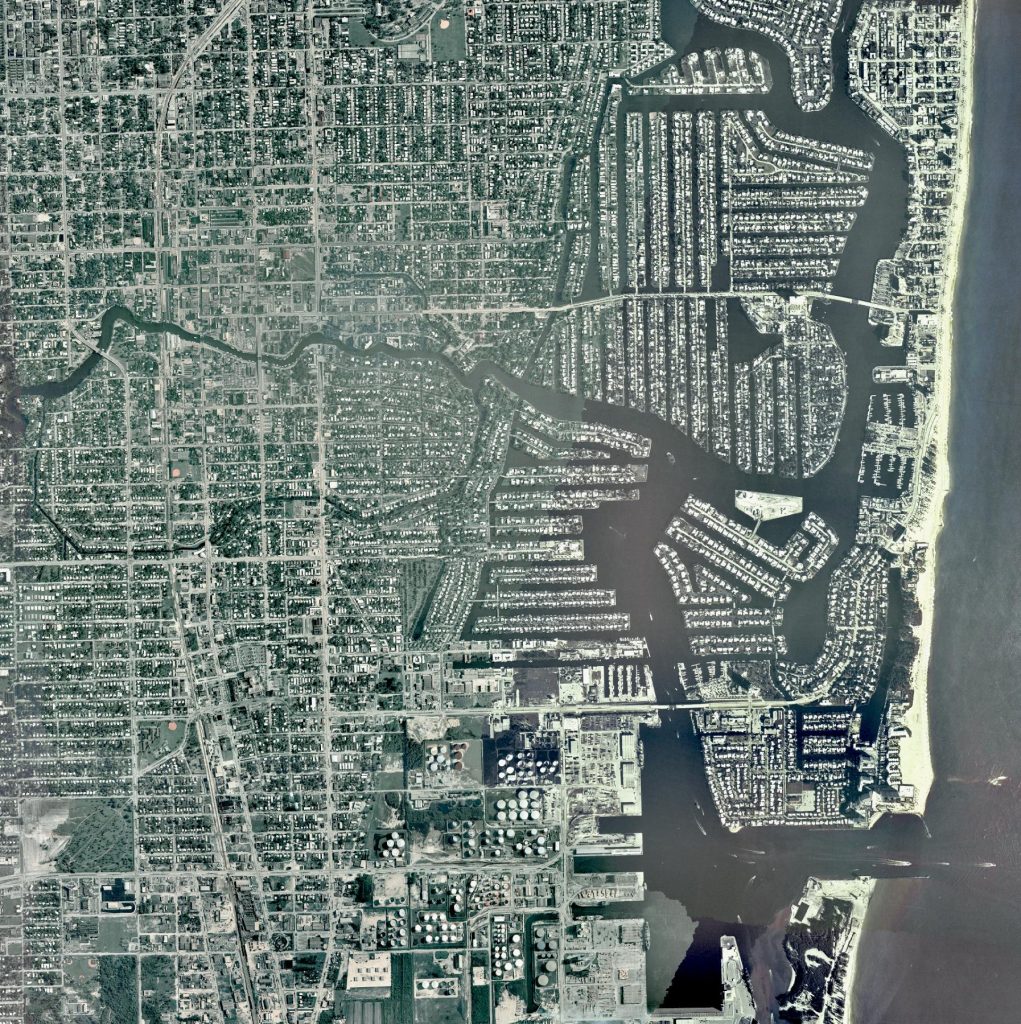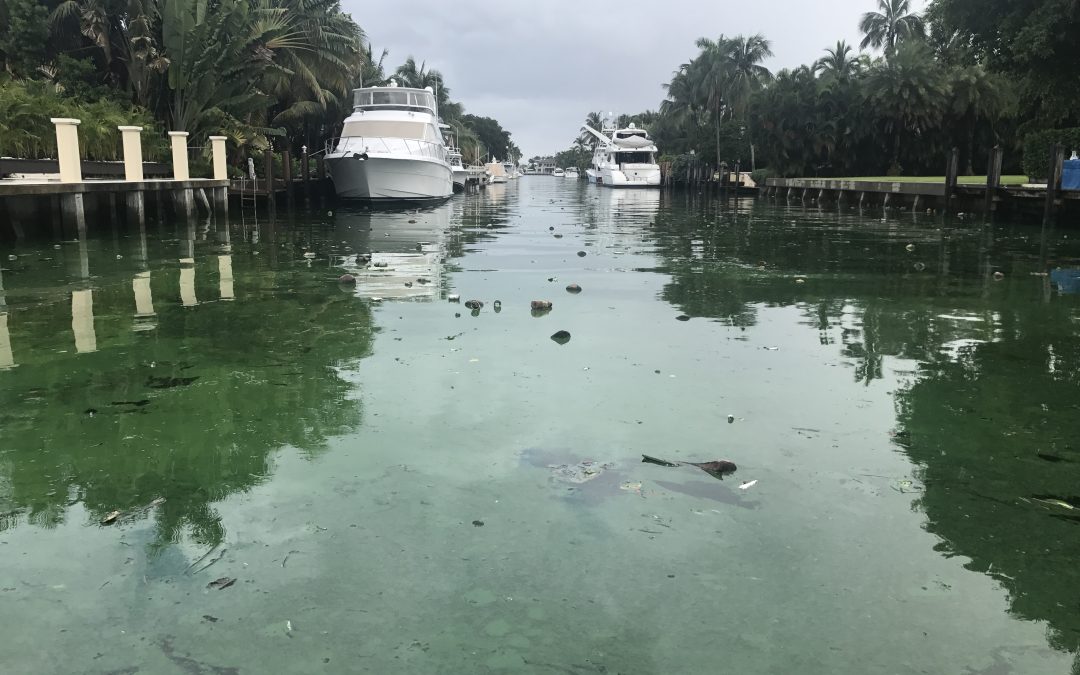A New Appointment, But Not a New Direction
On April 27, 2025, Marco Aguilera will officially start as Fort Lauderdale’s first-ever Chief Waterways Officer. The position, hailed by the City Manager’s Office as a sign of progress, was supposed to usher in a new era of stewardship over our canals, Intracoastal, and marine infrastructure. At face value, it sounds like a win. But to many in the boating and marine community, this appointment feels like a hollow gesture—a box checked, not a bold step forward.

Qualifications Matter—Especially on the Water
The Chief Waterways Officer was never meant to be just another bureaucratic post. It was envisioned as a bridge between the city and its boating community—a role that would champion clean water, fight pollution, and coordinate agencies with the credibility of lived experience.
Instead, we got a career administrator with no known boating, marine, or environmental background. Aguilera’s previous city role was as the Homeless Initiatives Administrative Supervisor. Aguilera may be well-intentioned, but ask around and you’ll hear the same questions:
Is he a boater? Has he ever navigated the Las Olas canals after a summer storm? Has he spoken to charter captains whose businesses suffer every time the city’s failing infrastructure leaks into our waterways? Does he even own a kayak or paddle board?
If he has, no one in the marine community seems to know about it—and the City certainly hasn’t said so.
A City Built on Water, Still Sinking in Sewage
Fort Lauderdale isn’t just a beach town—it’s a water town. With over 165 miles of navigable waterways, we don’t just live near the water; we live on it and in it. And yet, our city continues to treat our canals as an afterthought:
- Chronic sewage spills
- Stormwater runoff and failing drains
- Fish kills and algae blooms
- Manatee deaths
- Collapsing seawalls

This new position was supposed to fix that. But appointing someone with no proven marine expertise sends a message: City Hall is more interested in optics than outcomes. That’s no surprise after you consider the position has been left unfilled for over a year. Our waterways have never been a priority and may never be.
The Kind of Leader We Actually Need
There are passionate, credentialed candidates in our community who would have brought both credibility and impact to this role—people like marine biologists, experienced watermen, and conservationists who have spent their careers restoring seagrass beds, studying marine pollution, and leading citizen-led waterway cleanups. These are individuals who already work alongside state agencies, advocate for sustainable boating practices, and are trusted voices in environmental science. Choosing someone with that kind of résumé would’ve sent a powerful message: Fort Lauderdale is serious about saving its waterways.
Instead, the City handed the job to someone who, by all public accounts, has no documented experience in the issues he’s now supposed to lead on.
The Watchdogs We Already Have
While City Hall may be tone-deaf to the needs of our waterways, Fort Lauderdale is not without powerful advocates. In fact, some of the strongest voices protecting our water don’t sit behind a government desk — they’re out on the docks, in the mangroves, and organizing their communities from the ground up.
Jeff Maggio, better known online as @lunker_dog on Instagram, has become the loudest voice for our canals and coastlines. A fishing guide and lifelong waterman, Maggio has spent years documenting sewage spills, fish kills, and overdevelopment with brutal honesty and unmatched local knowledge. When sewage spills into the canals, Maggio doesn’t wait for a press release. He films it. He reports it. He holds the City accountable. He doesn’t draw a paycheck for it. He does it because he cares.
You’d think a guy like that might have been consulted when hiring someone to lead our waterway strategy. He wasn’t.
Miami Waterkeeper, @miamiwaterkeeper, a South Florida nonprofit and member of the national Waterkeeper Alliance, has also been at the frontlines. Their team of scientists, policy experts, and legal advocates fight for clean water, resiliency, and marine habitat protection through data-driven advocacy and litigation when necessary. Their recent testing of Fort Lauderdale’s waterways — which revealed alarming levels of bacteria and pollution — didn’t come from a city initiative. It came from a community-driven push for accountability and transparency. Just like the creation of the Chief Waterways Officer role, it was residents who forced the issue onto the agenda.
And then there’s Residents for Resilience, @residents_for_resilience, a nonprofit launched by Fort Lauderdale locals, including founder Suzee Bailey, who were tired of watching their city ignore the rising tide — literally. Focused on public education, grassroots advocacy, and bridging the gap between science and city planning, this group represents a growing movement of residents determined to protect our future. When City Hall stalled, they mobilized.
These are the people doing the work. They’re sounding the alarms. They’re offering solutions. They’ve filled the void left by leadership that prefers photo ops over pollution control.
Of course, the list doesn’t end here. Fort Lauderdale is full of everyday residents, marine scientists, clean-up crews, captains, and conservationists who put in the work — quietly and consistently. But these are the kinds of people who should be guiding our water policy: those with calloused hands, clear eyes, and a real stake in the future of our waterways.
It Didn’t Have to Be This Way
This position could have been a turning point. A signal that the City finally understood that the people who live and work on the water should have a seat at the table. Imagine if the announcement had gone differently:
- A respected local captain or marine scientist tapped to lead
- A lifetime waterman with a track record of conservation, cleanup, or rebuilding seagrass beds
- Someone who could speak with authority to both policymakers and boaters.
That’s the kind of leadership the marine community was hoping for—and the kind it still deserves.
Let’s Be Fair—and Let’s Be Helpful
At the same time, we shouldn’t just write Marco Aguilera off. Whether or not he was the right pick, he’s now in the role—and if he’s going to succeed, he’ll need guidance from the people who know these waterways best. That means residents, scientists, fishing guides, and advocates sharing what they know, offering support, and helping steer him in the right direction.
We have every right to ask hard questions—and we must. But let’s also provide the institutional memory, lived experience, and practical knowledge that can help him succeed. Because if Aguilera fails, it’s not just on him. It’s our water that pays the price.
Where We Go from Here
If the City truly wants to improve all facets of our waterways, it must start by including the people who actually live on the water. It must recognize that local knowledge is not an option it’s essential. Accountability starts now and the community must demand answers:
- What advisory board of scientists, local captains, guides, and residents will inform Aguilera’s work?
- What are the measurable goals—and how will the public track progress?
And if those answers don’t come from City Hall, they’ll come from residents, environmental advocates, and watchdogs like Maggio or Bailey—because someone has to care enough to ask.
Fort Lauderdale, Don’t Let This Slide
The health of our waterways isn’t just about boats and beaches. It’s about property values, public health, economic vitality, and community identity.
This city will always depend on the water. The question is whether our leadership is willing to protect it—or whether, like so much else in Fort Lauderdale, they’ll hand it off to someone who just doesn’t get it.
What You Can Do
- Follow and support local water advocates like Jeff Maggio, Residence for Resilience, and Miami Waterkeeper
- Attend public meetings and ask questions about waterways oversight.
- Volunteer for waterway cleanups and marine restoration projects.
- Demand transparency from city officials about qualifications and plans.
- Share this article with friends, neighbors, and anyone who loves the water


Let’s give him a fair shot guys. He might be the one. Best of luck in your new position Sir.